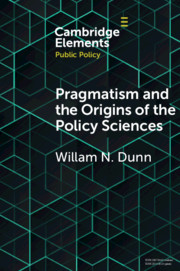Element contents
Pragmatism and the Origins of the Policy Sciences
Published online by Cambridge University Press: 08 March 2019
Summary
- Type
- Element
- Information
- Series: Elements in Public PolicyOnline ISBN: 9781108676540Publisher: Cambridge University PressPrint publication: 14 March 2019
References
- 26
- Cited by



